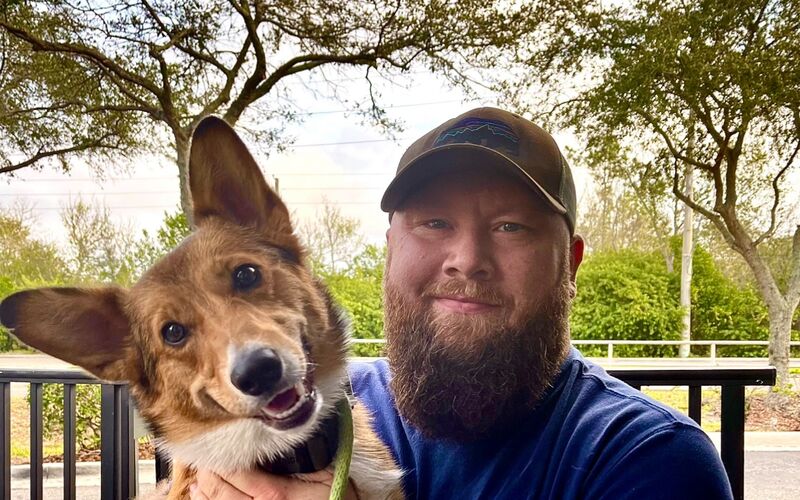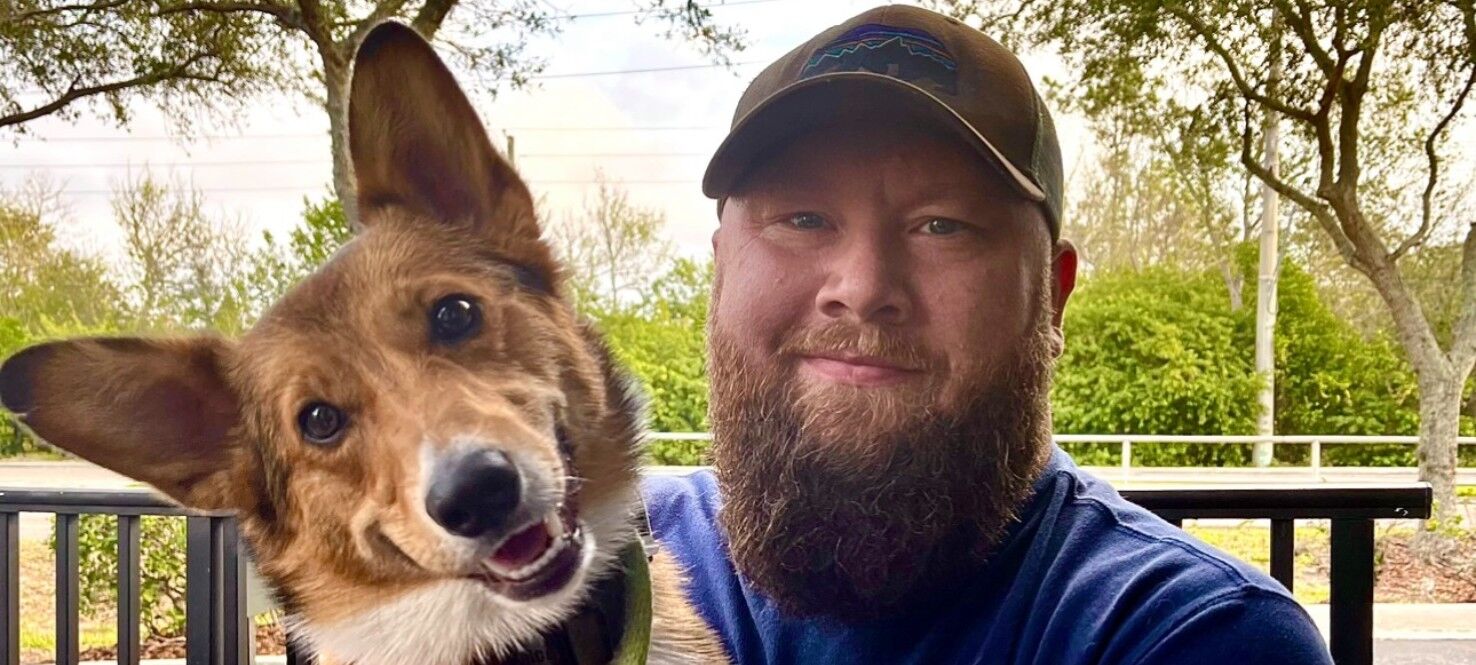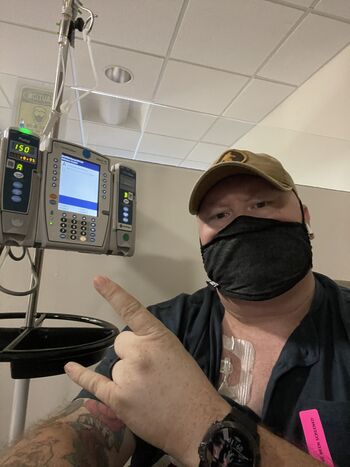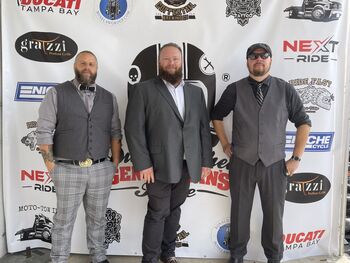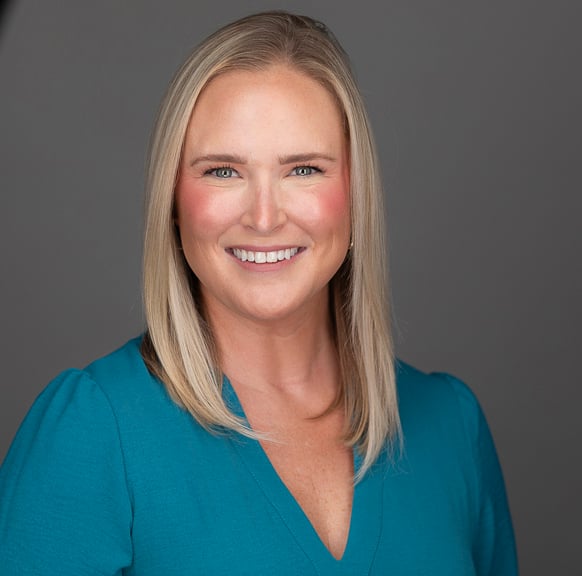A Father, a Fighter and a Voice for Testicular Cancer
Brett Davison has worked at Moffitt Cancer Center for nearly a year. As the senior Microsoft Office 365 administrator, he’s one of the behind-the-scenes pros making sure digital tools stay secure, up-to-date and working properly so employees can communicate and collaborate without a hitch.
But Davison’s connection to Moffitt goes far beyond his title. He’s been part of the Moffitt family since 2020, when he turned to the cancer center not as an employee but as a patient. At age 37, Davison was diagnosed with stage 2B testicular cancer.
A Subtle Sign Something Was Wrong
It all started in late 2019 when Davison first noticed something was off. He wasn’t in pain or sick — he noticed something looked different. One of his testicles was larger than the other.
“I didn’t feel a lump. It didn’t hurt. It just seemed bigger,” Davison recalled. He turned to the Internet first, where he found a mix of scary information. However, he brushed it off to focus on his job and family.
Then the pandemic hit. His symptoms persisted, but COVID-19 made scheduling a doctor’s appointment nearly impossible. When Davison was finally able to see a urologist, it was August 2020. The doctor only needed seconds to deliver the news he had feared.
“I was on the table for what felt like five seconds. The doctor said, ‘We’re going to get you in for surgery. It’s testicular cancer. We need to get that out of you,’” Davison said.
The next morning, Davison was in surgery. Soon after, he began treatment at Moffitt, facing months of intensive chemotherapy and eventually another surgery.
A Fight Made Harder by Isolation
Treatment during the pandemic added another layer of fear and isolation. “I was the weakest and sickest I’ve ever been in my life,” Davison said. “And I was alone. No visitors. Just me, my thoughts and chemo.”
At the time, Davison was working full-time at another company, logging into his computer from his infusion chair and trying to be the best dad to his young daughter, Zoey.
Brett Davison was grateful for the Moffitt nurses who supported him during chemotherapy when visitors weren't allowed.
“My thoughts immediately turned to my daughter,” he said. “What would happen to her if I didn’t survive? How would my family cope? What would happen to my job? Would everyone else be OK?”
Davison remembers the physical treatments were brutal, but the emotional battle was just as intense — and harder to talk about.
“I am a big believer in therapy. It took me a little bit to compartmentalize how scared I was and how powerless I felt,” Davidson said. “For men, that’s a hard thing. We are taught to be protectors and providers and a lot of men don’t feel comfortable being vulnerable.”
At Moffitt, individuals between the ages of 18 and 39 are recognized as part of the Adolescent and Young Adult (AYA) population — a group especially impacted by testicular cancer.
“While testicular cancer is relatively rare, it’s the most common cancer in young men, with the average diagnosis age at 33,” said Sarah Benitez, an oncology social worker at Moffitt. “AYA patients often face added challenges around body image, identity and fertility preservations — decisions they may not have previously considered.”
Flipping the Stigma
Men with testicular cancer may find it more challenging to talk about their diagnosis with loved ones due to the location of the cancer. Some people may feel embarrassed or uncomfortable discussing their diagnosis, making it difficult for people to proactively care for their mental health.
“Studies show higher occurrences of anxiety and depression for those with a current or past testicular cancer diagnosis compared to those without this diagnosis,” explained Melissa Rice, an oncology social worker at Moffitt. “Other emotions commonly felt are anger, confusion and fear.”
While it is natural to focus on physical health, it is also important to take care of mental health during and after treatment. Rice stresses physical and mental health are closely related and affect each other.
She suggests many ways to care for your mental health, including talking with loved ones about your cancer experience, joining a support group, engaging in creative activities and seeing a therapist.
“For many, the first step is simply giving themselves permission not to be OK and accepting whatever emotions are present,” Rice said.
Davison supports men's health by participating the Distinguished Gentlemen's Ride every year.
Now in remission, Davison is using his voice to help break the silence around testicular cancer while working for a place he is passionate about. A motorcycle enthusiast, he also participates every year in the Distinguished Gentlemen’s Ride, a motorcycle event raising money for men’s mental health and cancer awareness.
“When the opportunity arises, I am just frank and honest about it,” he said. “I think it's important, especially when someone who looks like me — a big guy with a beard and tattoos — can be open and honest about cancer. It helps remove the stigma.”
Support Along the Way
At Moffitt, oncology social workers help patients navigate the emotional, social and practical challenges that come with cancer. That includes:
- Emotional Support: Helping patients cope with the psychological impact of cancer
- Fertility Preservation Advocacy: Assisting patients in navigating the financial and logistical aspects of sperm banking
- Reducing Stigma: Providing education and resources to normalize conversations about testicular cancer
- Resource Guidance: Connecting patients and caregivers with financial assistance programs, support groups, and other essential resources


